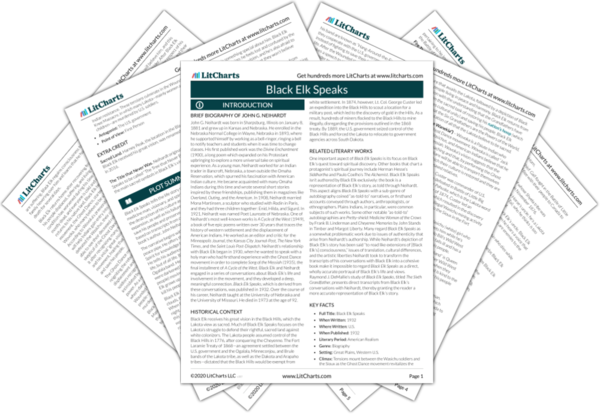Black Elk and the other Wild West
performers visit Grandmother England at Earl’s Court, in London, on May 11, 1887. The people yell “Jubilee!” because the performance is a part of Queen Victoria’s Golden Jubilee, which celebrates the 50th anniversary of her ascension. Grandmother England’s “shining” clothing is a visible display of her wealth. The reader might compare Grandmother England’s “shining” appearance to the shining, “yellow metal” that has caused Black Elk and his people so much trouble. This passage therefore indicates that the
Wasichus’ obsession with material wealth extends far outside Black Elk’s homeland. But despite her obvious wealth, Grandmother England’s kindness makes Black Elk wonder whether his people’s situation wouldn’t be so dire if Britain, and not the U.S., had assumed control of his land. Black Elk’s comment betrays his cynical, defeated stance that it was inevitable that his people would be conquered by some outside force.
